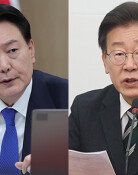[Editorial] The Leader of Koreas Truth and Reconciliation Committee
[Editorial] The Leader of Koreas Truth and Reconciliation Committee
Posted November. 26, 2005 07:19,
Will the Presidential Committee on Investigating Past Abuses for Truth Seeking and Reconciliation to be launched on December 1 be able to subjectively review history with a balanced view and draw socio-political reconciliation from it? Or will it follow the opposite path?
The direction will be forecast by the assignment of Father Song Ki-in, who will be appointed to lead the committee and be given a status similar to that of a government minister. He is the spiritual pillar of President Roh Moo-hyun, and is regarded as some as the de facto power by being called the Godfather by the presidential staff originating from Busan. This is one of the reasons why we are interested in the thoughts of Father Song.
Six months ago, in an interview with a monthly magazine, Father Song said, The people with vested power in our society are trying to continue to blind the normal people while letting their descendants enjoy the wealth and power, and designated those who are pro-Japanese as the roots of those with vested rights. It is a masochistic, historical analysis that reflects a condescending view of Korean history as a shameful history filled by pro-Japanese and pro-Americans.
However, Father Songs criticism of the powerful is quite self-contradicting, in that he is the patron of the current Living Power Group. Would it have been possible, in the first place, for Father Song, who has never studied history methodologically, to become the chairman of the committee to oversee the nations massive past history, if it hadnt been for his special relationship with the president? Did the government not seize war trophies in the past few months, which can only be seen as the yielding of vested power, when it appointed their own people to official posts, including Father Songs appointment?
If Father Song is to suddenly become qualified to criticize the powers of the past, shouldnt he also then say a few words about the current regime draining the life out of the vested powers, in order to become balanced? Increasing social animosity toward the vested powers, excluding themselves, can only be seen as an act to extend and expand their own powers. In particular, is it reasonable to draw history, which should be left to the world of academics, to the political arena?
Father Song also said, South and North Korea should join hands in encouraging the U.S. troops to withdraw. The prosperity of the nation can only be guaranteed when Seoul and Pyongyang closely unite, without letting the U.S. know about it. Regarding the North Korea nuclear issue, he commented, It will be difficult for North Korea to throw bombs toward this nation. Prior to that, in an interview with SBS Radio in May 2003, he claimed that the 38th Parallel was divided by the Americans.
North Korea is ignoring calls from the international society that it will be aided if it renounces its nukes and improves its human rights, and adheres to its stance on nukes because it plans to preserve the regime by taking South Korea as military hostage. It was also previously disclosed that North Korea had already been preparing to set up its own separate government, even before an independent South Korean government was established. In such a situation, having lived his life under the South Korean constitution, is Father Songs unconditional affection toward Pyongyang and blaming of the U.S. as the culprit of the division, a calculated distortion or historical ignorance? Has Father Song learned nothing from living on the eve of the Korean War of 1950, when the South Korean government, fooled by Kim Il Sungs deceptive tactics, was totally unprepared for war?
We want to make clear that if Father Song oversees and directs the committee for the next four years, and decides to redraw history with a biased view, that it, too, will be a sinful act.







